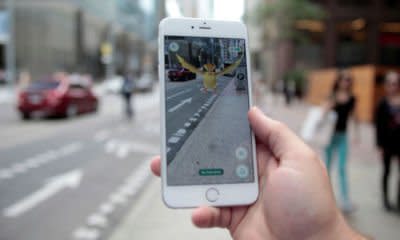Apple and Google prepare for Augmented Reality clash

Apple (NasdaqGS: AAPL - news) and Google are preparing to go head-to-head with their development of competing Augmented Reality (AR) platforms.
While the potential applications for AR are encouraging the development of other devices such as smart glasses , the market dominance of mobile devices has seen Apple and Google commit to developing apps which would be usable on phones.
Both companies have this week showcased new AR tools available for Android and iOS devices which allow users to digitally superimpose objects onto the world around them through their phones.
Google has said its AR technology will be released with the new Samsung Galaxy S8 and its own Pixel phone, while Apple is making its technology generally available on all devices running its new operating system iOS 11.
As such, Apple's AR offerings will be available across a broad range of devices - and although iOS 11 hasn't been released yet, demonstration apps have already been presented to potential consumers.
Most of these have been proofs of concept and unlikely themselves to revolutionise the market, but a number of more marketable apps have been developed with companies such as IKEA.
The furniture retailer worked with Apple to develop an app which allows phone users to measure the space in their homes and digitally "place" an item from its catalogue in that space on their phone.
"AR is big and profound," said Apple's chief executive, Tim Cook, when talking to investors earlier this month. "And this is one of those huge things that we'll look back at and marvel on the start of it."
Google meanwhile is attempting to develop a system which would equally be capable of being installed on the 100 million devices that currently run the Android operating system, but is behind Apple on creating something lightweight that could be run on older devices.
Neither Apple nor Google could expect the marketability of AR apps to meet that of Pokemon Go, which was released last year and helps to increase Apple's App Store sales 40% to $20bn (£16bn).
The benefit for Google through its Play Store is not known, but is likely to be similar to Apple's. The search giant's pre-existing investment in the company behind Pokemon Go, Niantic, will have additionally encouraged its investment in AR.

 Yahoo Finance
Yahoo Finance 